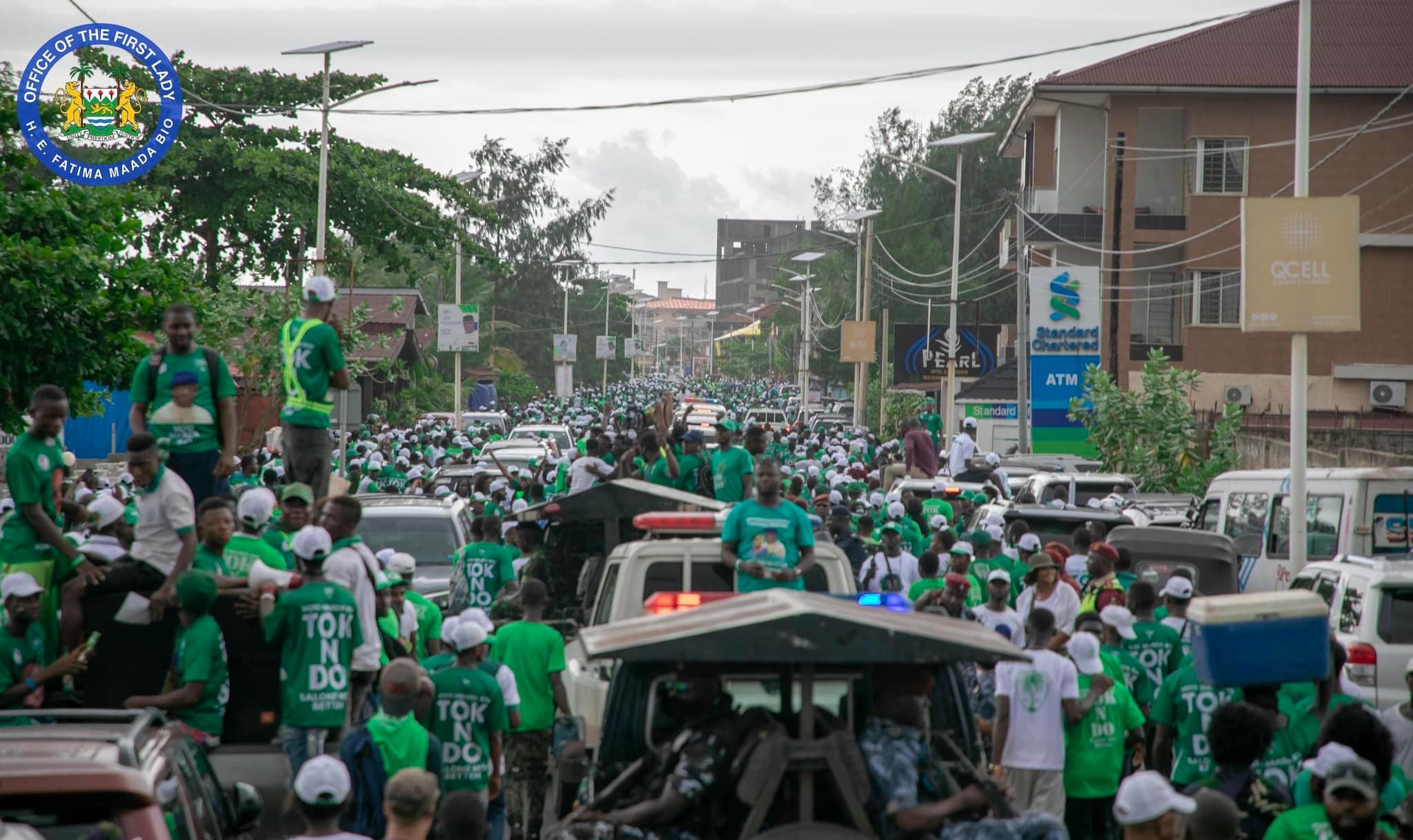In May 1963, Ghana’s greatest leader, Kwame Nkrumah, speaking in Addis Ababa, called on African leaders (31 at the time) to unite as a continent or perish.
His call for African Unity in Addis Ababa resonated across the African continent. “No sporadic act nor pious resolution can resolve our present problems” Nkrumah said. “Nothing will be of avail, except the united act of a United Africa,” he added.
The SLPP is the oldest political party in Sierra Leone and one of the oldest in Africa. Its founding principle was unity – “One Country, One People,” it proclaimed.
Exactly three years after it was launched, it led Sierra Leone to Independence on 27 April, 1961.
Evident disunity, a deviation from its core foundational principle, in part caused it to lose power in 1967/68. Political instability followed and the country was plunged into a dictatorship. The army overthrew the government of Joseph Saidu Momoh in April 1992. It stayed in power for four years.
Under Julius Maada Bio, presidential and general elections were held in 1996. The SLPP won the presidential run-off elections and the party’s presidential candidate, Alhaji Ahmad Tejan Kabbah, was sworn-in as President of the Republic of Sierra Leone.
Tejan Kabbah governed the country from 1996 to 2007. His first presidential inning (1996 to 2002) witnessed at least two coup attempts, and one successful one: he was overthrown in May 1997 and he fled into exile to Guinea. He was reinstated to power in March 1998. In January 1999, Ahmad Tejan Kabbah’s SLPP government suffered another major setback, when rebel forces nearly took over the capital city of Freetown.
In 2007, the SLPP allowed itself to be divided again, with the breakaway of Charles Margai and his forming of the renegade PMDC. Expectedly, the electorate voted the SLPP out of power. The SLPP presidential candidate, Solomon Berewa, conceded defeat. He later argued that he did not lose the run-off elections in 2007, but he had clearly been badly wounded by Margai’s defection.
In 2012, the SLPP fielded Brig. (Rtd) Julius Maada Bio as their Presidential candidate. The APC’s Ernest Bai Koroma was declared the winner of the 2012 presidential elections. The SLPP argued that it won the 2012 elections but lost the results.
In 2018, after eleven years in opposition, Julius Maada Bio won the Presidential run-off elections for the SLPP by defeating the APC standard bearer, Samura Mathew Wilson Kamara.
After five years in office, the electorate reelected President Julius Maada Bio in June 2023 for a second and final five-year term. President Bio has three more years in office.
SLPP Succession Debate
The SLPP is currently engaged in conducting lower-level elections across the country and in the diaspora. The elections have so far been largely peaceful across the country, except in two districts, Tonkolili and Kenema. There have been allegations of vote buying, printing of fake membership cards, and intimidation of some SLPP members being reported in several opposition leaning local newspapers and social media platforms.
The SLPP is expected to elect their flag bearer for the 2028 elections at any time between 2026 and 2027. The Honorable Vice President Dr Mohamed Juldeh Jalloh is seen by many in and out of the SLPP as the heir apparent. He has been a loyal and effective VP, an active party member, and a generally likeable gentleman.
But there are other aspirants emerging like the former Speaker of the ECOWAS Parliament Hon. Sidie Mohamed Tunis, the Minister of Foreign Affairs and International Cooperation Alhaji Timothy Kabba, the Chief Minister Dr David Moinina Sengeh, Hon. Alhaji Musa Tarawally, and Alie Kabba.
These are, so far, the well-known aspirants for the position of flag bearer of the SLPP. It is not clear whether Dr. Kandeh Kolleh Yumkella is in the race to succeed President Julius Maada Bio in 2028. But many people see him as very unreliable. Only time will tell!
Party Unity
In the first place, there is increased anger and bitterness in the party. Some party members feel aggrieved that they have not benefited from the patronage system since the party came to power in 2018. Others feel that they have not been adequately compensated for their support for the party and President Bio since 2011.
President Bio has repeatedly called for party unity. The party’s leadership must embark on the process of internal reconciliation. The SLPP is currently split right in the middle. A lot of efforts must be made by the party’s leadership to unite the party ahead of crucial elections in 2028. Does the party have enough money and resources to run their campaign in 2028?
The lower level elections at home and in the diaspora must be conducted in a free, fair and transparent manner. Let party members decide on the candidates they want without any force of coercion. Nothing should be done to undermine the will of party members.
Frivolous election petitions must not be entertained. Overturning lower-level election results or orchestrating violence during lower-level elections must not be tolerated by the leadership of the party. Respect for party members and supporters must be reinforced at all levels of the party.
The SLPP is well-known as the party of peace, internal democracy, law and order and human capital development. The party is well respected for practicing internal democracy. Let the will of party members win over violence, sycophancy and coercion.
Ahead of crucial elections in 2028, the SLPP must endeavor to unite or risk losing those elections to their main rivals the APC, who are hungry for power.
If the SLPP does not quickly close rank behind the most agreeable candidate, it will suffer the fate it has always suffered when it is not properly united.
SLPP: Unite or Perish!



 Post a comment
Post a comment









